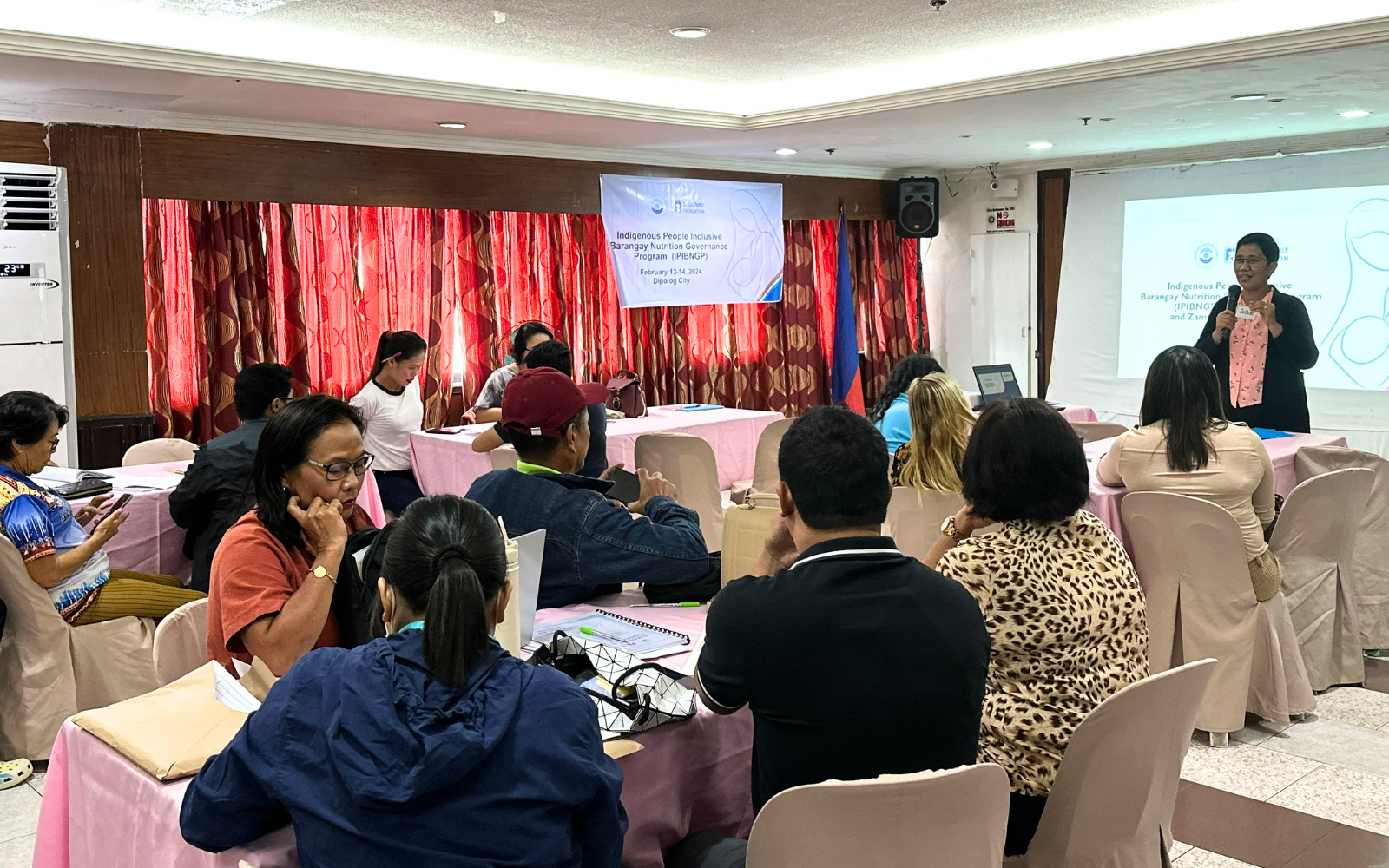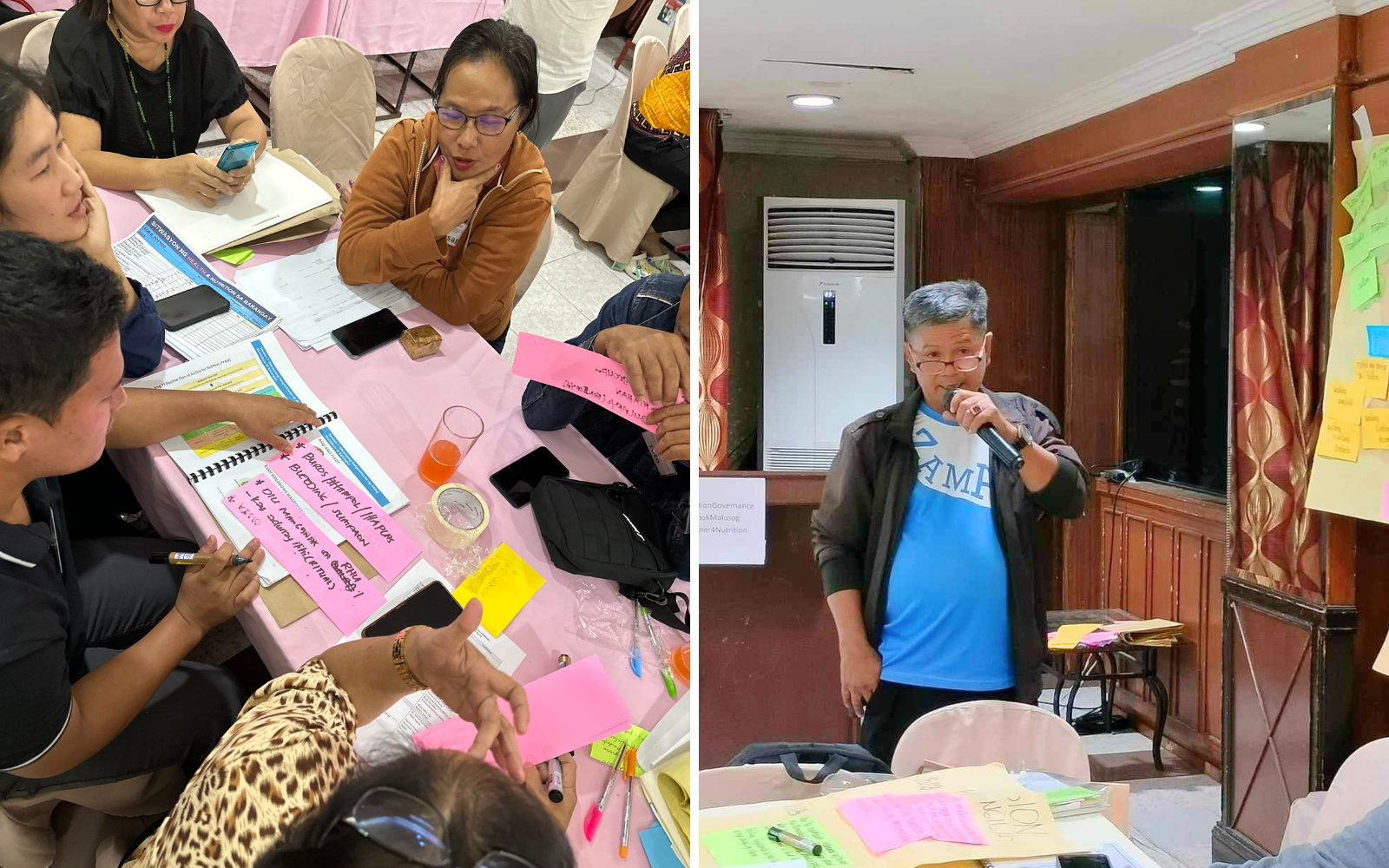Strengthening Indigenous Nutrition Practices: Health and Culture Can Thrive Side By Side
Stories | by Krizzia Esperanza

In a diverse archipelago like the Philippines, ensuring equal access to healthcare and nutrition services is a significant challenge, particularly among Indigenous Peoples (IPs) who often face unique cultural and geographical barriers. Recognizing this imperative, the Zuellig Family Foundation (ZFF) has launched the IP Inclusive Barangay Nutrition Governance Program (IPIBNGP) to address the specific needs of IPs in marginalized communities.
The IPIBNGP is part of a broader initiative, the Provincial Nutrition Governance Program (PNGP), aimed at improving the lives of vulnerable children and women in selected provinces across the Philippines. Collaborating with the Kristian Gerhard Jebsen Foundation (KGJF), ZFF is committed to enhance maternal, infant, child, and adolescent nutrition and health services, particularly within the critical First 1,000 Days (F1KD).
On February 13-14, 2024, ZFF initiated its pilot IPIBNGP roll-out training for the municipalities of Leon Postigo and Siayan, home to the Subanen, a large ethnic group in the Zamboanga peninsula area in Mindanao.
The two-day training, led by experts from ZFF-KGJF and Davao Medical School Foundation Inc. (DMSFI), engaged barangay and indigenous leaders, health workers, and nutrition scholars in interactive discussions on holistic nutrition governance. The participants delved into the fundamental concepts of nutrition, insights into the root causes of malnutrition and child health issues within the Subanen communities. This foundational knowledge serves as their springboard for crafting locally relevant interventions.

At the core of the program’s framework lies a participatory approach that places utmost importance on amplifying the voices and agency of the Subanen people in crafting their own health journey. Sessions on community participation and engagement underscored the importance of inclusivity in driving sustainable change. By integrating indigenous practices and beliefs into formal governance structures—local planning and budgeting cycles—the program seeks to create a sense of ownership and accountability among community members.
Representatives from Barangay Mangilay, Siayan, in their vision board wrote: “Nagkahiusa nga kumonidad bisan paman sa nagkalain-lain nga kultura ug pagtuo tumong sa usa ka malambuon, malinawon himsog ug hamugaway nga barangay.” (A united community despite differences in beliefs and culture working together towards a peaceful, prosperous, healthy and comfortable barangay.)
In Zamboanga del Norte, the Subanen people are keepers of tradition and symbols of hope. With the IPIBNGP guiding them, they stride towards a healthier, brighter future—one deeply rooted in their rich heritage and nourished by collective action. As the program continues to expand its reach across the Philippines, it not only underscores inclusivity and cultural sensitivity but also serves as a reminder of the resilience and strength inherent within indigenous communities. With their traditions as a guide, they are building a tomorrow where health and culture thrive side by side.